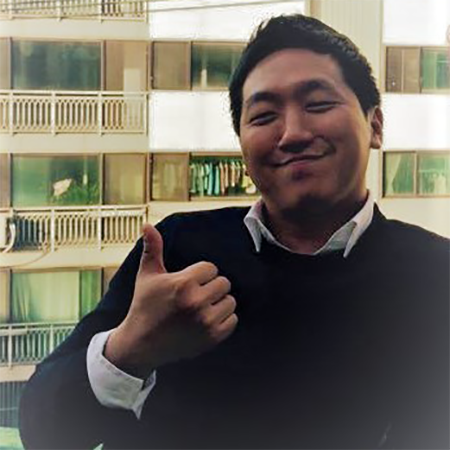Assistant Professor Dongyeop Kang adds NLP focus to CS&E team

Welcome Dongyeop Kang! The newest assistant professor joined the Computer Science & Engineering (CS&E) faculty in September 2021.
Kang brings a focus and expertise in natural language processing (NLP), which will complement the current CS&E faculty in the robotics and artificial intelligence research area.
Specifically, he is interested in human-centered language technologies, and his research is focused on developing interdisciplinary methods for NLP models and building interactive NLP systems.
Dr. Kang is establishing his lab—the Minnesota NLP Group—as an interdisciplinary team that will draw theories from linguistics, social sciences, and cognitive sciences to develop state-of-the-art machine learning algorithms, and demonstrate their stability to real-world users through human-computer interaction.
The group will study various aspects of NLP models, such as planning, reasoning, and pragmatics, and build interactive NLP systems to help scientists, writers, and developers read, write, and communicate better.
Kang chose the University of Minnesota for both the collegial environment in the CS&E department and the chance to collaborate with award-winning researchers.
“I was very much drawn to the non-hierarchical, friendly, and family-like atmosphere of the department during the interview, which I consider to be the most important factor,” he shared. “Moreover, I wanted to work with U of M researchers conducting cutting-edge research in HCI and robotics, and I strongly believe that together we can make tremendous strides in both fields.”
The assistant professor is also excited to collaborate with researchers across the University, with specific interests in Linguistics, Health Informatics, Data Science, Medicine, and Psychology.
“I believe that we can only develop these human-like and human-centered AI systems if we collaborate across faculty and departments at U of M,” stated Kang.
Prior to joining the University of Minnesota, Dongyeop Kang was a postdoctoral scholar at the University of California, Berkeley. He obtained his Ph.D. in the Language Technologies Institute of the School of Computer Science at Carnegie Mellon University. His Ph.D. study was supported by the Allen Institute for AI (AI2) fellowship, the CMU presidential fellowship, and the ILJU graduate fellowship. During his doctoral work, he also interned at Facebook AI research, AI2, and Microsoft Research.